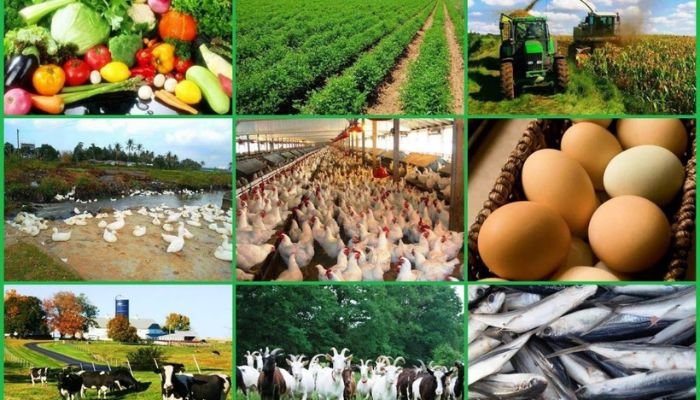“The agency aims to create a hub-and-spoke model, where smallholder farmers can access inputs, training, and markets, while also providing opportunities for private sector investment and job creation.”
The National Agricultural Land Development Authority (NALDA) is spearheading a revolutionary approach with innovative reforms to transform Nigeria’s agricultural sector. Ruth Tene Natsa writes on NALDA’s set reforms.
As Nigeria continues to grapple with the challenges of food insecurity, unemployment, and economic stagnation, as well as land depletion due to displacements and climate-related issues, NALDA has unveiled 4 strategic projects to boost the nation’s food security while boosting farmers morale.
At the helm of the agency’s affairs, Cornelius Adebayo, Executive Secretary and Chief Executive Officer, while engaging with the media, said his administration is focused on 4 key projects; these include the Renewed Hope Restoration Project, Renewed Hope Mega Farm Estates, the Green Hope Project and the Aqua Hope Project.
Read also: Why is food so expensive despite Nigeria’s agricultural potential?
He said, “The Renewed Hope Resettlement/Estate aims to resettle displaced farmers and provide them with the necessary inputs and security to reduce logistics problems and ensure proper monitoring and evaluation.”
Adebayo observed that “This project is particularly significant, given the country’s history of farmer-herder conflicts and the displacement of farmers from their ancestral lands. We realised that most of our experienced farmers are displaced from their land,” the executive secretary explained.
“We have over 3 million displaced persons within Nigeria alone. So, we decided to create a project that would put these farmers back into the economy, provide them with the necessary support, and ensure they become self-sufficient.”
He further informed that NALDA had also launched the AQUA HOPE Project, which focuses on providing support for rural communities to engage in fish farming and increase food production. This project is particularly timely, given Nigeria’s significant deficit in fish production.
“We are still importing over a million tonnes of fish annually, and we are producing less than 300,000,” he said.
“Another critical project under NALDA’s umbrella is the Green Hope Project, which promotes greenhouse farming and decentralises food production. The project includes the distribution of solar pumps to farmers, reducing their dependence on petrol and lowering production costs,” the NALDA boss added.
Read also: Policy summersault always destroy the gains we achieve in the agricultural sector
“We need to encourage greenhouse farming,” the executive secretary emphasised. “No developed country depends on open-field cultivation of vegetables to sustain itself. We need to create clusters of greenhouses in top consumption areas, including Lagos, FCT, and Port Harcourt.”
He added that the agency has partnered with institutions to provide high-tech greenhouses, increasing output and promoting export-oriented agriculture.
The agency aims to create a hub-and-spoke model, where smallholder farmers can access inputs, training, and markets, while also providing opportunities for private sector investment and job creation.
“We are not just focusing on food production; we are also looking at the economic benefits,” the Executive Secretary said. “We want to create a situation where farmers can earn a decent living, where they can afford to send their children to school, and where they can contribute to the country’s economic growth.”
NALDA’s approach is not just about increasing food production; it’s also about creating a sustainable and inclusive agricultural sector. The agency is working closely with state governments, local communities, and private sector stakeholders to ensure that its projects are tailored to the specific needs of each region.
“We are here for every serious farming group, cooperative, company, and sub-national government level,” the Executive Secretary said. “We need to work together to achieve food security, which leads to general security. When everybody is engaged and secure, there’s nobody that wants to run around like a madman. Everybody just wants to get engaged doing something.”
As NALDA continues to drive its innovative approach to agricultural development, the agency is calling on stakeholders, including farmers, private sector investors, and the media, to support these efforts and work together to ensure Nigeria’s food security.
Read also: Mega farm estates will revolutionise Nigeria’s agricultural ecosystem – Adebayo, CEO, NALDA
“We need to educate Nigerians properly, to let them know what we are doing, to let them know where they can benefit, and to let them know where they can come in to assist,” the Executive Secretary said. “Together, we can ensure that Nigeria is secure in food, and when we are secure in food, we are secure in everything else.”
NALDA, established in 1992, has the core mandate to provide strategic public support for land development, promote and support optimum utilisation of Nigeria’s rural land for accelerated production of food and fibre, encourage and support economic size farm holdings and promote consolidation of scattered fragments holdings to generate net incomes.
Among other activities, the agency is charged to encourage large-scale agricultural development, provide land development in the agricultural sector through infrastructural development, education facilities, storage, access roads, and the partitioning of lots, encourage food production, and also improve the production for export.
It is to be recalled that the agency was merged into the Ministry of Agriculture and Rural Development, now the Ministry of Agriculture and Food Security, and again formally revived in 2020, with operations formally started in 2021.

